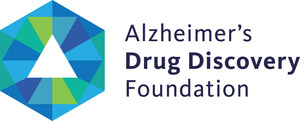Anti-amyloid therapy lecanemab is the first of many drugs needed to give patients meaningful relief from Alzheimer's disease
Developing new and novel biomarkers is more important than ever as drugs like lecanemab will only be beneficial if given to right patients at right time
NEW YORK, Jan. 6, 2023 /PRNewswire/ -- Today's FDA approval of the monoclonal antibody lecanemab (Leqembi) for the treatment of patients with early Alzheimer's disease and confirmed amyloid plaques in the brain is an important milestone for the millions of patients and families living with this disease.
"This is encouraging news, but the approval of lecanemab is just the first step," said Howard Fillit, M.D., Co-Founder and Chief Science Officer of the Alzheimer's Drug Discovery Foundation (ADDF). "Alzheimer's therapies will only be beneficial to patients if the right drug is given to the right patient at the right time based on their unique disease pathology, and for that we need new and novel diagnostic biomarkers."
Alzheimer's is a complex disease driven by the biology of aging, and the slowing of cognitive decline by approximately 25% to 30% as seen in the CLARITY-AD trial may be all patients can reasonably expect from amyloid-clearing drugs alone. "We need—and are on the way to having—multiple drugs we can combine to personalize treatments to match each patient's Alzheimer's pathology, which will have a much greater impact on slowing the disease," said Dr. Fillit.
Today's Alzheimer's drug pipeline is incredibly robust and productive. According to a recent report, more than three in four drugs in clinical trials explore non-amyloid targets in the aging brain that contribute to the relentless destruction of cognitive function Alzheimer's patients and families face every day. Combination treatments with a precision medicine approach are needed to not just slow but stop Alzheimer's in its tracks.
Years of investment – including early seed funding from the ADDF – and research into biomarkers have given clinicians some of the tools they need, such as the Amyvid® PET scan and the blood test PrecivityAD®. The ADDF continues to lead the development and commercialization of new and novel biomarkers through its Diagnostics Accelerator initiative, which is crucial as every new drug will need to be paired to a new biomarker test so doctors can match patients to the right therapies.
"Today's news is incredibly important and a source of optimism not only for patients, but also for the medical and research community," said Dr. Fillit. "It shows us that our years of research into what is arguably the most complex disease humans face is paying off and it gives us hope that we can make Alzheimer's not just treatable, but preventable."
While this FDA accelerated approval is based on biomarker data showing the drug clears amyloid plaques, which is expected to lead to clinical benefit, Eisai next plans to submit data for a traditional approval of the drug later this year.
Founded in 1998 by Leonard A. and Ronald S. Lauder, the Alzheimer's Drug Discovery Foundation is dedicated to rapidly accelerating the discovery of drugs to prevent, treat and cure Alzheimer's disease. The ADDF is the only public charity solely focused on funding the development of drugs for Alzheimer's, employing a venture philanthropy model to support research in academia and the biotech industry. The ADDF's leadership and contributions to the field have played a pivotal role in bringing the first Alzheimer's PET scan (Amyvid™) and blood test (PrecivityAD™) to market, as well as fueling the current robust and diverse drug pipeline. Through the generosity of its donors, the ADDF has awarded nearly $250 million to fund over 720 Alzheimer's drug discovery programs, biomarker programs and clinical trials in 19 countries. To learn more, please visit: http://www.alzdiscovery.org/.
SOURCE Alzheimer's Drug Discovery Foundation

WANT YOUR COMPANY'S NEWS FEATURED ON PRNEWSWIRE.COM?
Newsrooms &
Influencers
Digital Media
Outlets
Journalists
Opted In






Share this article